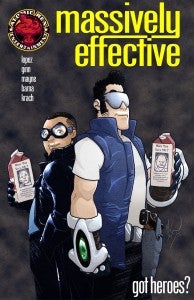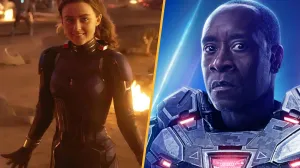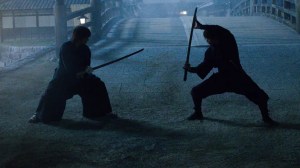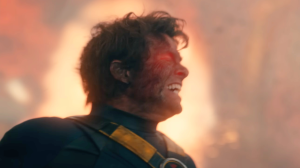What happens when your Kickstarter campaign doesn’t get funded?The simple answer is, “You don’t get the money,” but that doesn’t tell the whole story. Many Kickstarter campaigns are mounted to help pay for passion projects that otherwise would still exist–but which would be a drain on the creator’s personal resources until and unless the project became profitable on the back end.There’s also the question of fans–what do you do when you get FANS out of your Kickstarter campaign–people who want to read your comic or watch your movie–but who are left in the dark when your campaign ends?Some Kickstarter campaigns manage it by closing early when they see the writing on the wall. If a campaign is cancelled, as opposed to unsuccessfully funded, it’s easier to keep tabs on your backers and keep them in the loop if there’s a future reboot of the campaign or if someone buys up the property after Kickstarter is a bust.Others, particularly those for whom the project is not how they’re making their living, can’t do their day job, their passion job AND the “third job” of runnning a Kickstarter campaign–which takes quite a bit of effort and quite a few sleepless nights. When the campaign fails outright, those people lose the ability to connect directly with their would-be backers, forcing them to start over again basically at ground zero when and if they decide to give it another go.Such is the case for Massively Effective, a funny and clever “buddy-cop” superhero story by Marco Lopez and Bryan Ginn who, along with a strong art and production team, have kept the project alive after a rocky year and made it a fledgling success in the digital-only market.We spoke with the creators recently about the launch of their series through Drive-Thru Comics, where they catapulted to #1 on the Hottest Items chart in spite of a Kickstarter campaign (you can see the video below) that generated only about 15% of its goal a year ago. They also plan to be headed to popular digital comics retailers Comics Plus and comiXology soon; no firm date is yet set, but they’ve got their requests in and are just waiting to hear back on details–while the second issue will be available at the Drive-Thru site this week.ComicBook.com: What’s the elevator pitch?Marco Lopez: I would say–man!–I’ve always pitched it as basically like the classic duo-buddy sitcom. Like Booster Gold and Blue Beetle, but worse.Bryan Ginn: Someone recently said Tango & Cash and I thought that was pretty funny.Lopez: Yeah, someone recently when they read the comic said it was Tango & Cash in tights.ComicBook.com: See, I see Quantum & Woody influences.Ginn: Yeah, now that that’s coming back after we started doing this, it’s like I guess maybe there’ll be a new, fresh market for that kind of book.ComicBook.com: Do you see being a book with a lot of humor as problematic in today’s market?Ginn: It’s pretty lighthearted but at the same time it does go pretty serious sometimes too. It definitely uses hyumor and humor is relevant in it but I don’t think it relies on it as much as something like The Tick or even Quantum & Woody.ComicBook.com: Now, I caught an obscure pop-culture reference or two in these first couple of issues–but I’m not a great geek. Outside of comics and the occasional odd movie, I’m actually not much part of the culture. Am I missing stuff left and right?Ginn: There’s a lot of Transformers dialogue that seems to just pop up randomly but as far as references to other things, the first four issues or whatever don’t really have too many references like “Oh, we love this geek culture, throw it in your face.” It’s more like we’re a fan of genres, referencing different genres so to speak than specific references.Lopez: Yeah, the first miniseries–and if it’s any kind of success we’ll make another miniseries. We’re not looking to make any kind of money off of the comic, we’re just looking for the comic to get to the point where we can do more of the comic and tell more stories. But the first miniseries was designed to be like a throwback to ’80s Saturday morning cartoons and that mentality and the idea that, you know, mostly you don’t change it in storytelling those old cartoons, unless it was to bring in fresh, new characters then all the other characters got killed off.And it played with that idea–played with the idea of characters coming back, superhero characters coming back and at one point they’re all day-glo, neon colors, very happy and then they come back and it’s all gritty and a little darker and people are out for blood, that type of things.But reference-wise, the obvious one was the Transformers. Like Bryan said, we’r enot throwing references left and rigght. There’s things we might homage here and there like at the end when it has the “To Be Continued…” Back to the Future thing but pretty much in itself anything that’s reference-wise or homages may be five or ten percent of the comic book and the rest is all original stuff. We’re playign on certain stereotypes that you see in the comic books like the buddies actually are fighting.ComicBook.com: Old Man Snake in the Grass here reminds me a bit of Al from Quantum Leap. Is that just me?Ginn: We’re very much omni-geeks. We love everything–any kind of genre culture, geek culture we’re huge fans of. So obviously there’s always going to be something whether it’s on the surface consciously or whether it just came down from our subconscious. There’s always going to be something like that on there, but we try not to directly be like, “Hey this is Al or this is that.” So it’s very much like a love letter to all of that type of geek culture and it starts off in the world of superheroes but by the end of the fourth issue you’re going to realize that it’s going to go away from that. Not entirely–it’s still a superhero book but it’s going to go everywhere. If we do get to do more miniseries and more issues, we want to tell all kinds of stories that aren’t just superhero. We want to go into sci-fi. We want to go to time travel which we kind of did in the first miniseries. We kind of leap out everywhere and kitchen sink it.ComicBook.com: How do you go forward from here? If it’s a passion project, what’s your next step if you do want to make more?Lopez: At one point we tried before we decided to release the book digitally, we tried Kickstarter and it wasn’t a success. So the way I’m looking at it right now is depending on how it does digitally–we’re still waiting on responses from Comics Plus and comiXology–so the one thing about digital is that it depends on the avenues you take in terms of how well the book does. I’m looking at it more like giving it time on digital and seeing how it does by the end of the year. If we end up on comiXology, that might open up more paths and we might sell more copies. For an indie book that came out of nowhere, we’ve been doing pretty well on Drive Thru Comics. We’re hoping to sell it to the point where it allows for the next miniseries to happen. If it doesn’t, then our plan is to go onto another book. We have other titles that we’re working on.Ginn: We’ve got other comic books that we’re working on but specifically just for Massively Effective we’ve got tons of stories just for that.









